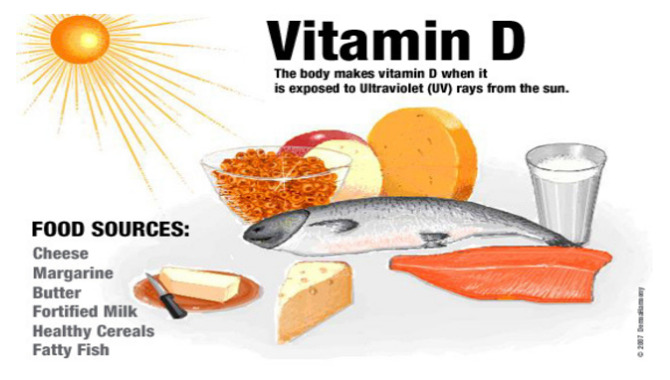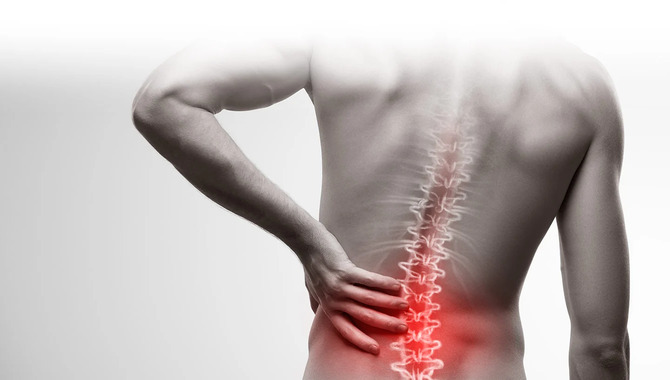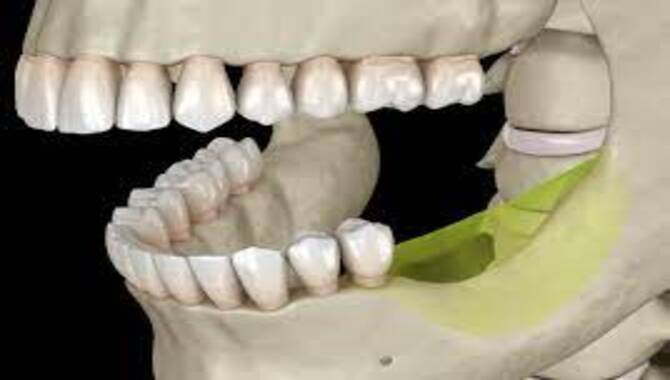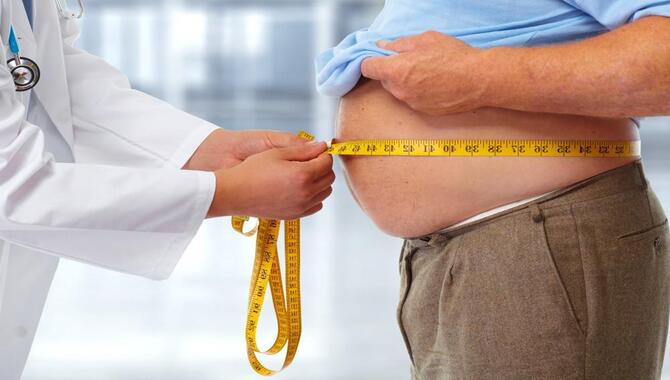Vitamin D deficiency is a common vitamin deficiency that is often undiagnosed. It can cause bones and muscles to become weaker and soft, teeth weakening, immune system problems, and low mood. In the United States, vitamin D deficiency is particularly common among people of color and those who do not get enough sun exposure. Vitamin D is essential for your health, and deficiency can lead to various health problems.
Here, we’ll discuss nine warning signs that you may be vitamin D deficient and provide tips on how to remedy the situation. We will also explain the importance of vitamin D and its role in maintaining your overall health and offer tips on increasing your intake of this important nutrient. So whether you’re looking to improve your health or prevent future health problems, read on to learn more about vitamin D and how to fix your deficiency.

Why Is Vitamin D So Important?

Vitamin D is essential for healthy bones and teeth, a strong immune system, healthy skin, and a strong overall immune response. Research has shown that vitamin D deficiency can lead to depression, osteoporosis, and cancer. This is because vitamin D helps regulate calcium levels in the blood and body which are vital for bone health and strength.
The best way to get enough vitamin D is through exposure to sunlight. However, if you don’t have enough sunlight exposure or the time of day isn’t right for you, then taking vitamin D supplements is another option. Many foods are high in vitamin D, including fish, egg yolks, and oily fish such as salmon or tuna. However, few low-D foods exist; some examples include mushrooms and dairy products (e.g., milk).
9 Warning Signs And Symptoms Of Vitamin D Deficient

A vitamin D deficiency can cause a wide range of symptoms, from muscle pain and fatigue to decreased appetite, difficulty sleeping, skin problems, immune problems, bone problems, and mood disorders. A vitamin D deficiency can lead to any of these issues if it’s not prevented properly.
Symptoms of vitamin D deficiency include muscle pain or weakness, fatigue, loss of appetite, difficulty sleeping, dry skin, itchy skin, increased risk of developing asthma or other inflammatory conditions in the mouth, nose, and eyes (eczema), decreased bone density, lower bone mineral content and strength (decreased bone mineralization), osteoporosis (a disease characterized by a low-calorie density of bones), increased risk of developing seasonal allergies to pollens or dust mites (pollinosis), and cognitive difficulties. However, modern lifestyles may make getting enough vitamin D in your diet harder. With that in mind, let’s discuss nine signs of vitamin D deficiency and how you can fix it.
1.Frequent Illness Or Infections

Vitamin D is essential for the body’s immune system to function properly. Inadequate vitamin D levels can lead to several health problems, including frequent illness or infection. As such, people need to ensure they are getting enough vitamin D in their daily diet and supplementing with vitamin D supplements if they live in an area with low exposure to sunlight. However, if you cannot supplement your vitamin D intake, there are other options. You can speak to your doctor about taking a vitamin D supplement or increasing sunlight exposure through sun lamps or tanning beds.
If you are obese or have difficulty absorbing vitamin D, speaking to your doctor about supplementation may be beneficial. Additionally, people deficient in vitamin D may consider taking a supplement that contains both vitamin D and calcium, such as vitamin D2 or calcium d3. This will help ensure you get the right amount of these important nutrients in your daily routine.
2.Fatigue And Tiredness

Vitamin D deficiency can lead to various symptoms, including fatigue and tiredness. When vitamin D levels are low, the body cannot efficiently absorb calcium from the intestines or bones, resulting in muscle weakness and pain. These problems can also lead to mood swings and other health problems. You must see a doctor for further evaluation if you have any of the following symptoms.
However, correcting vitamin D deficiency with supplements or increased exposure to sunlight can help restore optimal health. Besides supplementing with vitamin D, there are several ways you can increase your vitamin D levels without supplements. These include spending time outdoors during the day or taking vitamin D-rich supplement daily.
3.Bone And Back Pain

Vitamin D is a vital nutrient for the absorption of calcium and other nutrients. It is also important for muscle and bone health. A deficiency in vitamin D can lead to various health problems, including bone and back pain. If you notice any of the following signs or symptoms, it is time to seek medical attention: muscle weakness, fatigue, constipation, calcium deficiency, chest pain, and kidney stones.
To stay healthy and maintain optimal hormone levels, it is imperative to supplement your diet with vitamin D-rich foods and take vitamin D supplements if needed. However, getting enough sunlight each day is still the best way to ensure adequate vitamin D.
4.Depression

A deficiency can cause depression in vitamin D, which is essential for mood and mental health. Other symptoms of vitamin D deficiency include fatigue, anxiety, and weight gain. The best way to test for vitamin D deficiency and treat it, if necessary, is through supplementation with vitamin D. Regular supplementing with vitamin D can help restore mood and mental health. If you suffer from depression and have low vitamin D levels, speak to your doctor about supplements or testing options to determine how you can improve your health.
5.Impaired Wound Healing
Vitamin D is essential for the growth and function of several cells and tissues in the body, including those involved in wound healing. This vital vitamin is necessary to grow and repair the skin, muscles, and bones. In addition to its role in the immune system and calcium metabolism, vitamin D has been shown to play a vital role in wound healing by promoting new tissue growth.
However, low vitamin D levels can lead to impaired wound healing, which can cause pain, inflammation, and decreased mobility. If you notice any of the following signs or symptoms of vitamin D deficiency, you must talk to your doctor.
6.Hair Loss

Vitamin D is essential for the health of your hair. It plays a vital role in the growth and health of your hair follicles and the production of hair proteins. A deficiency in vitamin D can lead to various hair problems, including hair loss. If you are experiencing any of the following symptoms, you must speak with your doctor about getting tested for vitamin D deficiency.
Some common signs and symptoms of vitamin D deficiency include hair loss, brittle hair, rough skin, poor wound healing, weak bones, and an increased risk of osteoporosis. It is especially important to ensure you are obtaining enough vitamin D from natural sources such as milk, fish, eggs, and dairy products.
7.Bone Loss

Vitamin D is essential for bone health. It helps the body use calcium to produce strong and healthy bones. If you are vitamin D deficient, your body will not be able to use calcium efficiently. This can lead to bone loss and other health problems. When levels of vitamin D in the blood are low, it is often accompanied by increased calcium levels.
You can test your vitamin D levels with a blood or serum test. If you are vitamin D deficient, you must take supplements to fix the problem. There are a variety of supplements available. So, you can take it orally or topically to help supplement your intake of this essential vitamin. In some cases, you may require supplementation with vitamin D indefinitely. And it’s until levels reach a point where they no longer pose a health risk.
8.Muscle Pain

Vitamin D deficiency is often linked to muscle pain and weakness. The deficiency can lead to several other health problems, including muscle weakness and rickets. Muscle pain is a common sign of vitamin D deficiency. However, it’s not always easy to recognize. You may experience muscle pain and suspect that you’re vitamin D deficient. Then you must talk to your doctor about your symptoms.
There are several ways to fix vitamin D deficiency without needing a prescription or supplements. One option is to take vitamin D supplements daily. Other options include eating foods rich in vitamin D. Such as fatty fish, eggs, and dairy products, or taking a supplement that contains vitamin D3 in supplement form.
9.Weight Gain

There are several ways to increase vitamin D levels and improve your overall health. If you are experiencing any of the above symptoms, don’t just sit & watch. We recommend speaking with doctors about getting tested for vitamin D deficiency. Additionally, there are various supplement options available that can help raise your vitamin D levels. Seeing a healthcare professional may help identify the best course of action to improve your health if you are suffering from weight loss or other related health problems.
How To Fix Vitamin D Deficiency

If you have vitamin D deficiency, you may experience symptoms like muscle aches, fatigue, and immune system impairment. Your vitamin D level could be low if you don’t get enough sunlight or if your skin is not exposed to enough sunlight for a long period. Vitamin D levels in your blood can also be low if you consume vitamin D supplements that contain fewer than the recommended amount of vitamin D per day.
You can fix vitamin D deficiency by taking a supplement and increasing your exposure to sunlight. You can also try a vitamin D3 supplement or eat fatty fish or eggs. Make sure to drink plenty of fluids to prevent kidney stones from forming from low magnesium levels and other minerals.
Symptoms
If you’re not getting enough Vitamin D, your health could be at risk. Vitamin D is a nutrient that helps the body absorb calcium and other minerals, protects against cancer, and supports strong bones and teeth. Deficiency can cause joint pain, muscle weakness, depression, fatigue, headaches—even heart disease. You can take sunlight, food, or supplements to get vitamin D.
If you’re deficient in vitamin D, you may experience symptoms like fatigue, muscle pain, and a weakened immune system. However, you can easily fix your deficiency by supplementing with vitamin D or increasing your intake of vitamin D-rich foods.
Increase the level
Fortunately, there are many ways to increase your vitamin D intake without changing anything significant about your diet or lifestyle. You can take supplements (which are generally safe), get exposure to sunlight (through sunscreen or by spending time outside), or eat foods high in Vitamin D (such as fatty fish). There are many ways to increase your vitamin D levels on your own.
You can sunbathe, supplement with vitamin D3, or make dietary changes such as eating fatty fish or fortified foods. Consult a healthcare professional if you cannot increase your vitamin D levels. What’s more important is ensuring you’re absorbing all of the available nutrients from food and supplement sources—so talk to your doctor if you have any questions about how much vitamin D you need each day.
Conclusion
Vitamin D deficiency is a major public health concern, especially in regions with low sun exposure and limited access to vitamin D-rich foods. Yet, vitamin D deficiency is almost universal. Apart from skin exposure to the sun, our main source of vitamin D comes from exposure to short periods of sunlight (15 minutes) during the summer months.
The vitamin D we make in our skin is vital for muscle function, bone health, and immune system function. Without it, our body can’t maintain its calcium levels, and deficiencies can result in weakness, loss of muscle strength, and bone loss. If you’re worried that you’re vitamin D deficiency or want to supplement your intake with vitamin D supplements, visit a health supplement store or a qualified nutritionist for advice.
Frequently Asked Questions
1.What Are The Benefits Of Drinking Vitamin D For Weight Loss?
Ans: One of the many benefits of drinking vitamin D for weight loss is that it can help to maintain healthy bones and prevent diseases like cancer. Vitamin D also has many other health benefits, including weight loss.
2.How Much Vitamin D Do You Need To Take Daily To See Results?
Ans: We advise you to take 600 IU of vitamin D per day. This can be obtained through sun exposure, food sources, or a supplement. If you are deficient in vitamin D, you may experience symptoms such as muscle pain, fatigue, and poor sleep. You can increase your intake of vitamin D by taking supplements or using sunlight exposure.
3.Does Vitamin D Have Any Side Effects?
Ans: Vitamin D deficiency can have a few side effects, but most are mild. Some common side effects of vitamin D deficiency include fatigue, muscle pain, and skin problems. There are a few ways to increase vitamin D levels, but supplementation is usually the most effective. If you are vitamin D deficient and require supplementation, read the label carefully to find the right dosage.
4.How Do You Feel When Your Vitamin D Is Low?
Ans: When your vitamin D levels are low, you may experience fatigue, muscle pain, and a lack of appetite. In addition, a deficiency in vitamin D can lead to conditions like calcium deficiency, rickets, osteoporosis, and other health problems. So it is important to take action and fix the issue as soon as possible.
5.What Are The Potential Consequences Of A Vitamin D Deficiency?
Ans: A vitamin D deficiency can lead to several health problems, including depression, obesity, heart disease, cancer, etc. There are several ways to improve your vitamin D status, depending on your deficiency level. If you are concerned that you may be deficient in vitamin D, it is recommended that you consult a healthcare professional. However, if you are already deficient in vitamin D and are experiencing any of the following health problems, supplementation with vitamin D may help: with depression, obesity, heart disease, cancer, etc.

Leave a Reply